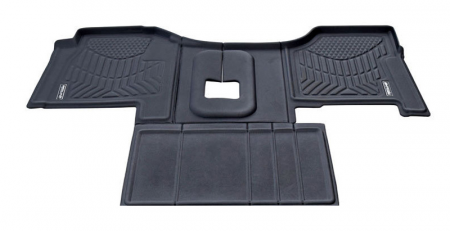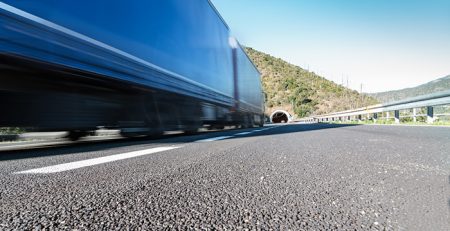Today’s Trucks Require A Far More Refined Fuel Than The Green Diesel Of Old

Growing up on a farm afforded me the chance to operate tractors, combines and trucks. I remember the green color of the fuel that we used in every dieselpowered engine we had. That fuel was not very refined.
Back then, diesel-powered equipment used low pressure fuel pumps and diesel injectors that were effective but not very sophisticated. Heavy black smoke blew from the exhaust and the engine surged. Nobody was concerned that there was also a huge loss of fuel efficiency.
Today, diesel engines have unit injectors containing complex electrical devices. Most diesel engines use high pressure common rail systems (HPCR), which require a much cleaner fuel to meet stringent environmental and engine performance requirements.
Plus, recent regulations require diesel fuel to have very little sulfur. Sulfur tends to fight microorganisms, which appear as a black slime. With low sulfur fuel, microorganisms flourish, leading to contamination that can plug fuel filters and damage fuel components.
Filtration is a priority
HPCR fuel systems offer additional control at the injector in the cylinder and lead to better fuel economy. Multiple injections per second dramatically improve fuel burn and efficiency in the combustion chamber. This is accomplished by increasing the pressure at the fuel injector from about 20,000 psi to over 40,000 psi. The machined components must work very precisely to handle those higher pressures. If contamination gets through the filter, it can cause too much friction and lead to a failed injector or fuel pump.
Contamination can be introduced in the fuel system from several sources, such as storage tanks, tanker transfer, pipelines and the fueling process itself. When a diesel engine stops and starts it vibrates. This vibration shakes contamination loose in the fuel filters and sends it toward the injectors and pump. That can become a problem if the fuel filter is filled with contamination. To make things worse, when you turn your engine off, fuel pressure drops in the fuel lines at the filters. When you start the engine, the pressure surges, which just escalates the possibility of contamination reaching the fuel pump and injectors.
Fortunately, fuel filtration systems are evolving to filter fuel to lower micron levels without restricting fuel flow. Purchasing quality fuel, and fuel filters that have the lowest micron level that can be used in a particular engine, significantly lowers the risk of contamination. The engine manufacturer’s recommendations will list the correct filter, but they also must be serviced at the correct interval.
HPCR systems are here to stay, and it’s the vehicle operator’s responsibility to keep them clean and trouble free. The air will be better for it, and going up and down the road, the truck will be better for it, too.
Source: http://roadking.com/trucks/












